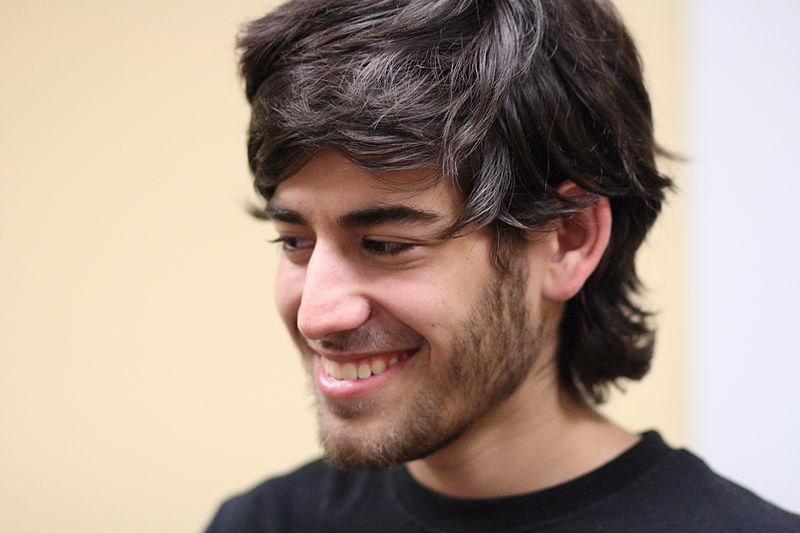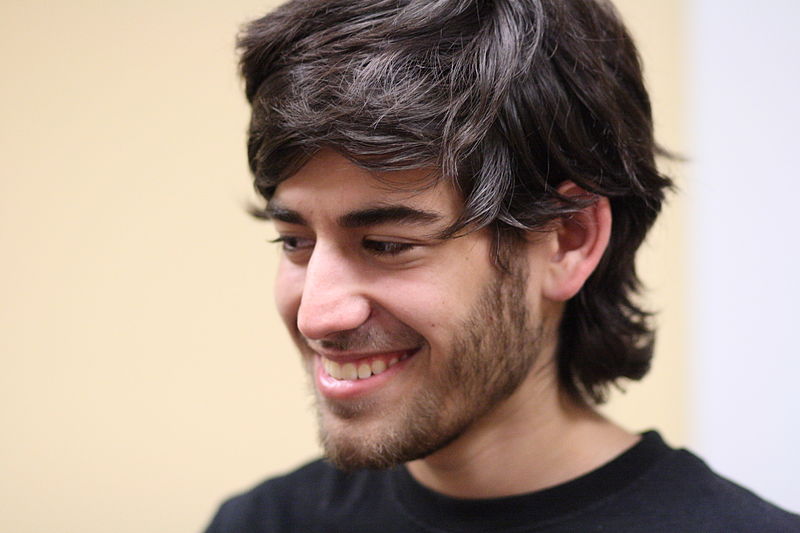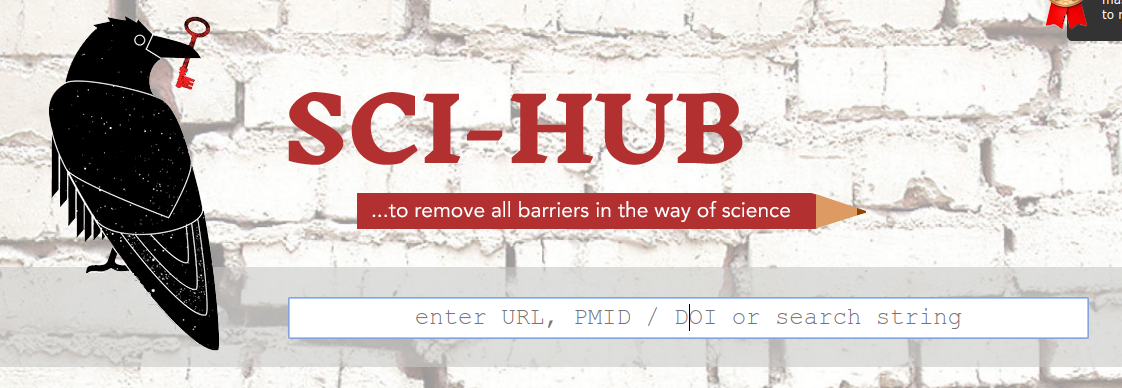
The Legacy of Aaron Swartz: The Fight for Open Access
December 23, 2019
Originally published on Economics from the Top Down
Blair Fix
Over the past few weeks, I’ve been thinking a lot about Aaron Swartz. Swartz was an internet pioneer who, in his teens and early 20s, made huge contributions to computer culture. Among other things, Swartz helped develop RSS (which organizes web feeds), Markdown (a simple language for creating webpages), and Reddit (the now massive news aggregation site).
While impressive, Swartz’s programming contributions are not why I’ve been thinking about him. Instead, I’ve been thinking about Swartz’s contribution to open science. Swartz helped to develop the Creative Commons license, which gives a flexible way for authors to share their work. But it my mind, Swartz’s most important contribution to open science was the one that eventually led to his death.
 Aaron Swartz [Wikipedia Commons]
Aaron Swartz [Wikipedia Commons]
Fighting the tyranny of academic publishing
In his 20s, Swartz became increasingly concerned with the tyranny of academic publishing. If you don’t know, academic publishing is the most bizarre racket imaginable. The vast majority of academic research is publicly funded. So you would think that the information garnered from this public research would be free to the citizens who funded it (i.e. everybody). But most academic papers are not free.
Instead, publicly-funded researchers give the copyright for their work to massive corporations such as Elsevier and Springer. In the last mile of public research, the information gets privatized and put behind a paywall. And the profits from this racket are obscene. In 2018, Elsevier’s profit margin was 37%. Let’s put this in perspective. Even during the peak of its profitability, Apple’s profit margin never got above 27%.
Now, many academics know that this privatization of public research is wrong. But academic careers depend on getting published in prestigious journals. And most of these journals are paywalled. So career-minded academics hold their nose and publish in paywalled journals. I admit that I’ve done it. And so the corporate publishing racket keeps rolling.
Fortunately, Aaron Swartz didn’t think like most academics. He didn’t give a damn about his ‘career’. Instead, he cared about the principle of open access. And through his “Guerilla Open Access Manifesto”, Swartz made this known to all.
The Guerilla Open Access Manifesto
There are very few documents that give me chills when I read them. The Barefoot Economics Manifesto is one. Aaron Swartz’s Guerilla Open Access Manifesto is another. Written in 2008, this Manifesto was a clarion call to liberate the world’s scientific literature. This literature is part of our shared inheritance, and by all rights should be free for all. But instead, it lives behind a paywall, available only to a lucky few. Swartz denounced this injustice, and called for the deliberate liberation of scientific literature. Below, I’ve reprinted the entire text of the Guerilla Open Access Manifesto. Swartz’s words still haunt me.
Guerilla Open Access Manifesto
Information is power. But like all power, there are those who want to keep it for themselves. The world’s entire scientific and cultural heritage, published over centuries in books and journals, is increasingly being digitized and locked up by a handful of private corporations. Want to read the papers featuring the most famous results of the sciences? You’ll need to send enormous amounts to publishers like Reed Elsevier.
There are those struggling to change this. The Open Access Movement has fought valiantly to ensure that scientists do not sign their copyrights away but instead ensure their work is published on the Internet, under terms that allow anyone to access it. But even under the best scenarios, their work will only apply to things published in the future. Everything up until now will have been lost.
That is too high a price to pay. Forcing academics to pay money to read the work of their colleagues? Scanning entire libraries but only allowing the folks at Google to read them? Providing scientific articles to those at elite universities in the First World, but not to children in the Global South? It’s outrageous and unacceptable.
“I agree,” many say, “but what can we do? The companies hold the copyrights, they make enormous amounts of money by charging for access, and it’s perfectly legal — there’s nothing we can do to stop them.” But there is something we can, something that’s already being done: we can fight back.
Those with access to these resources — students, librarians, scientists — you have been given a privilege. You get to feed at this banquet of knowledge while the rest of the world is locked out. But you need not — indeed, morally, you cannot — keep this privilege for yourselves. You have a duty to share it with the world. And you have: trading passwords with colleagues, filling download requests for friends.
Meanwhile, those who have been locked out are not standing idly by. You have been sneaking through holes and climbing over fences, liberating the information locked up by the publishers and sharing them with your friends.
But all of this action goes on in the dark, hidden underground. It’s called stealing or piracy, as if sharing a wealth of knowledge were the moral equivalent of plundering a ship and murdering its crew. But sharing isn’t immoral — it’s a moral imperative. Only those blinded by greed would refuse to let a friend make a copy.
Large corporations, of course, are blinded by greed. The laws under which they operate require it — their shareholders would revolt at anything less. And the politicians they have bought off back them, passing laws giving them the exclusive power to decide who can make copies.
There is no justice in following unjust laws. It’s time to come into the light and, in the grand tradition of civil disobedience, declare our opposition to this private theft of public culture.
We need to take information, wherever it is stored, make our copies and share them with the world. We need to take stuff that’s out of copyright and add it to the archive. We need to buy secret databases and put them on the Web. We need to download scientific journals and upload them to file sharing networks. We need to fight for Guerilla Open Access.
With enough of us, around the world, we’ll not just send a strong message opposing the privatization of knowledge — we’ll make it a thing of the past. Will you join us?
Aaron Swartz
July 2008, Eremo, Italy
Swartz takes action, and pays the ultimate price
Aaron Swartz didn’t just talk about Gorilla Open Access. He took action. In late 2010 and early 2011, Swartz went to MIT and began downloading a massive trove of paywalled articles owned by JSTOR. Unbeknownst to Swartz, police were tracking his activity, and he was eventually arrested.
Although JSTOR declined to press charges, the plot took an Orwellian turn when the US Federal Government got involved. The government indicted Swartz on a host of trumped-up charges. If found guilty, Swartz faced up to 50 years in prison. Living in an Orwellian nightmare, Swartz eventually committed suicide in 2013.
Aaron Swartz galvanized the open-access movement
Aaron Swartz failed to liberate the JSTOR collection to the public domain. And even if he had succeeded, his actions would have been a drop in the bucket. JSTOR owns a tiny fraction of the world’s paywalled articles.
So in terms of his specific goals, Swartz failed. But in symbolic terms, Swartz succeeded. The government’s heavy hand in his case made clear that academic publishing is all about power. Publishers rely on the power of the government to enforce copyright. Without this power, publishers’ profits would vanish.
In a sense, Swartz became an open-access martyr. His death — prompted by the government’s heavy hand — galvanized others to take action. And in the 6 years since Swartz’s death, there has been action indeed. In fact we now live in a very different world. Virtually all paywalled articles are freely available, thanks to those who have continued Swartz’s work.
The rise of Sci-Hub
The repository Sci-Hub has largely accomplished what Swartz set out to do. Sci-Hub has liberated virtually all of the world’s scientific literature. As of today, Sci-Hub hosts over 74 million journal articles. With the click of a mouse, these articles are freely available to anyone. It’s an enormous accomplishment — something that I think Aaron Swartz would be proud to see.
Sci-Hub was developed by Alexandra Elbakyan when she was a student in Kazakhstan. Elbakyan’s university couldn’t afford to pay subscription fees to many of the journals that she needed to read. So to do her research, she either had to buy access to each article (typically at $30 a piece) or find friends and colleagues who had access.
 Alexandra Elbakyan [Wikipedia Commons]
Alexandra Elbakyan [Wikipedia Commons]
Frustrated by this process, Elbakyan wrote an ingenious program that would end up liberating virtually all paywalled articles. The idea is almost unbelievably simple. Individual academics gave Elbakyan their credentials to their university portals. Elbakyan’s code then used these credentials to download paywalled articles. Once downloaded, the articles were placed in an online repository, available to anyone for free.
This process of liberating paywalled articles began as a slow burn. But it soon ramped up speed. Today, virtually all scholarly literature is available through Sci-Hub.
I think Aaron Swartz would be proud of Alexandra Elbakyan. And if he had lived, Swartz may have learned some lessons from Elbakyan’s success.
Aaron Swartz’s attempt to liberate JSTOR articles was doomed for a few reasons. First, he physically went to campus and surreptitiously hooked his computer up to an MIT server. This made him easy to catch. It also meant that his liberation of academic articles was a one off, not an ongoing process. Second, Swartz was liberating information from within the US — the center of the world’s property rights regime. This made him incredibly vulnerable to prosecution.
But where Swartz failed, Elbakyan succeeded. Part of this just came down to location. Elbakyan lived in Kazakhstan, a country that doesn’t enforce US copyright. So when publishers eventually went after Sci-Hub, they had no recourse. Sci-Hub has been sued multiple times in US courts, and lost every case (surprise surprise). As a result, Elbakyan technically owes millions of dollars to Elsevier and to the American Chemical Society.
But these companies will never see a dime. Why? Because Elbakyan lives in a country that doesn’t care about US property rights. All the courts can do is ban Sci-Hub’s domain names, which does nothing to stop the site. Sci-Hub just switches to a new domain and keeps running. What’s even better is that these lawsuits actual boost Sci-Hub’s publicity, leading to even greater use of the site.
The other important aspect of Sci-Hub is that it is decentralized. Sci-Hub doesn’t rely on any single university portal for access to paywalled material. Instead, the site uses credentials from many universities, effectively making it impossible to cut off its access. Working alone, Aaron Swartz used a single university portal to download a mass trove of documents. This was tenacious and gutsy, but ultimately a failure. Sci-Hub has succeed because it has distributed access over many portals. Again, I think that Swartz would admire the elegance of Elbakyan’s approach.
But not only does Sci-Hub give free access to the world’s scientific knowledge, it does so with an interface that is far superior to university portals. James Heathers has a great piece on this topic. He calls it Why Sci-Hub Will Win. Basically Sci-Hub gives instant access to an article, whereas getting the same article through university portals takes a half dozen tedious steps.
Bigger changes to come?
I love Sci-Hub. As someone working outside academia, I use it daily. Without Sci-Hub, I wouldn’t be able to do my research. It’s as simple as that.
But while I’m a big supporter of Sci-Hub, I admit that it’s not the final solution to open access. Yes, Sci-Hub liberates paywalled articles. But in an ideal world, there would be no need for this liberation. Instead, scientific literature should be open access by design. What we really need is a completely new model of academic publishing.
In the current model of open access, authors pay the fees. This is okay if you’re a tenured professor at Harvard. You can easily afford the open access fee. But if you’re a researcher working in a developing country, these fees are out of reach.
Besides this equity problem, author-funded open access has also led to the dubious practice of “double dipping”. Companies like Elsevier give authors the option to publish their articles as open access — even in journals that are otherwise paywalled. Elsevier charges authors thousands of dollars for this privilege. But then Elsevier continues to charge universities the same subscription price for the rest of the paywalled articles. So universities effectively pay for access twice. Universities support authors who pay for open access (through open access funds) and they pay subscription fees to the same journal. It’s hard to think of something more absurd.
Until recently, the open-access movement faced a catch-22 situation. To really support open access, universities needed to stop paying for journal subscriptions and put this money into open-access publishing. But if universities actually did this, their scientists would lose access to the existing paywalled literature. And without this literature, researchers couldn’t do their jobs. So as long as the vast majority of literature was paywalled, the open-access movement was doomed to be a fringe activity.
But Sci-Hub has changed all this. Here’s an astonishing fact: Sci-Hub gives access to more articles than most (if not all) university subscriptions. So in effect, university subscriptions are now useless. Not only is the Sci-Hub interface better, it gives access to far more articles. So if every university cancelled its journal subscriptions tomorrow, the impact on researchers would be … nill.
Although they won’t acknowledge this fact explicitly, I’m sure that university librarians have taken note. The rise of Sci-Hub is probably why university librarians have started to take bold action against publishers. In December 2016, German universities cancelled their subscription with Elsevier. In 2018, universities in Sweden and Hungary did the same. In 2019, Norway joined the list. Then a few months ago, a bomb dropped. The University of California cancelled its subscription to Elsevier. Just to give you a sense of scale, scientists at the University of California publish about 10% of all US academic research papers.
Here’s my take on these subscription cancellations. Because of Sci-Hub, universities know that their subscriptions aren’t necessary. So they’re emboldened to cancel journal subscriptions. Right now these cancellations are just a bargaining tactic with the end goal of lowering subscription fees. But hopefully in the future, universities will be far more radical. They should permanently cancel their paywall subscriptions and divert the money to open-access publishing.
Aaron Swartz’s legacy
The recent wave of subscription cancellations is, I think, one of Aaron Swartz’s legacies. He started the process of liberating paywalled material — a process that Alexandra Elbakyan completed. We now live in a world where effectively all scientific articles have been liberated from paywalls. Everyone in the world has free access to the humanity’s accumulated knowledge. What a beautiful thing. Aaron Swartz would be proud.
Of course there is much work to be done. As the old model of publishing collapses, we need a new one to replace it. This model must be open access by design. Europe recently took a huge step in the right direction with its Plan S initiative. By 2021, Plan S requires that publications stemming from publicly funded research must be published in open-access journals. The logic is simple and impeccable: the public should have access to the research it funds.
We’re a long way from living in world where all scientific publications are open access. But I’m hopeful that this will happen in my lifetime. And if/when it happens, we need to remember Aaron Swartz. He sacrificed everything for the open-access movement. We need to make sure his sacrifice wasn’t for naught.
Resources
If you’re interested in Aaron Swartz’s life and work, I highly recommend the documentary The Internet’s Own Boy: The Story of Aaron Swartz.
For a look at the racket of academic publishing, watch the documentary Paywall: The Business of Scholarship.
You should also check out Library Genesis. It hosts some 2.7 million books, available for free. We shouldn’t forget that as well as articles, books are an important part of the scholarly literature. Funny story about Library Genesis. Some years ago, I published a book about economic growth theory (you can find the preprint here). The publisher never gave me a PDF copy of the final version. But I have one now. I downloaded it from Library Genesis.

